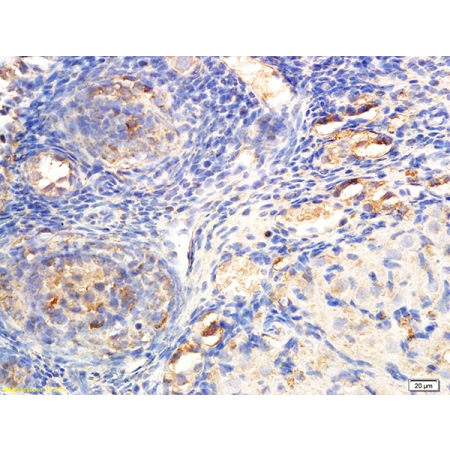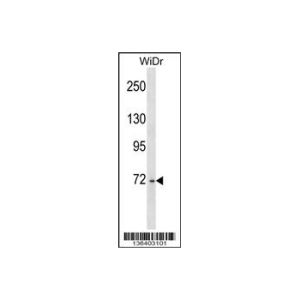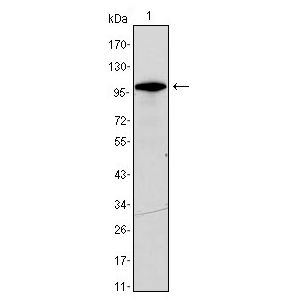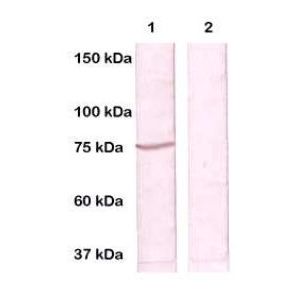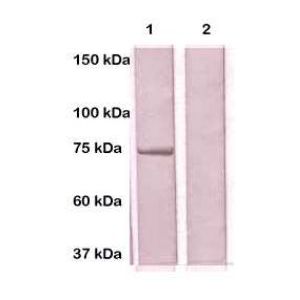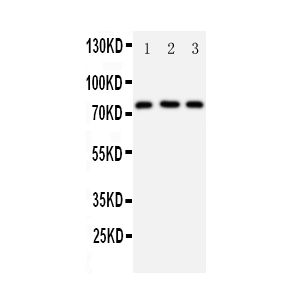DDX4 Antibody (OABF01275-100UL) : FITC
Référence OABF01275-FITC
Conditionnement : 100ul
Marque : Aviva Systems Biology
| Datasheets/Manuals | Printable datasheet for DDX4 Antibody (OABF01275) |
|---|
| Predicted Species Reactivity | Human, Mouse, Rat, Dog, Cow, Pig, Rabbit, Chicken |
|---|---|
| Product Format | Liquid 0.01M TBS (pH 7.4) with 1% BSA, 0.02% Proclin300 and 50% glycerol |
| Clonality | Polyclonal |
| Isotype | IgG |
| Host | Rabbit |
| Conjugation | Unconjugated |
| Application | FC, IF, IHC-P, WB |
| Reconstitution and Storage | Shipped at 4°C. Store at -20°C for 1 year. Avoid repeated freeze/thaw cycles. |
| Immunogen | KLH conjugated synthetic peptide derived from human DDX4. Loc: 601-700/724aa. |
| Purification | Protein A Purified |
| Concentration | 1 ug/ul |
| Application Info | WB: 1:300~5000 FC: 1:20~100 IHC-P: 1:200~400 IHC-F: 1:100~500 Fluorescent (IHC-P): 1:50~200 |
| Gene Symbol | DDX4 |
|---|---|
| Gene Full Name | DEAD-box helicase 4 |
| Alias Symbols | DEAD (Asp-Glu-Ala-Asp) box polypeptide 4;DEAD box protein 4;DEAD/H (Asp-Glu-Ala-Asp/His) box polypeptide 4;probable ATP-dependent RNA helicase DDX4;VASA;vasa homolog. |
| NCBI Gene Id | 54514 |
| Protein Name | Probable ATP-dependent RNA helicase DDX4 |
| Description of Target | DEAD box proteins, characterized by the conserved motif Asp-Glu-Ala-Asp (DEAD), are putative RNA helicases. They are implicated in a number of cellular processes involving alteration of RNA secondary structure such as translation initiation, nuclear and mitochondrial splicing, and ribosome and spliceosome assembly. Based on their distribution patterns, some members of this family are believed to be involved in embryogenesis, spermatogenesis, and cellular growth and division. This gene encodes a DEAD box protein, which is a homolog of VASA proteins in Drosophila and several other species. The gene is specifically expressed in the germ cell lineage in both sexes and functions in germ cell development. Multiple transcript variants encoding different isoforms have been found for this gene. |
| Uniprot ID | Q9NQI0 |
| Molecular Weight | 80 kDa |




